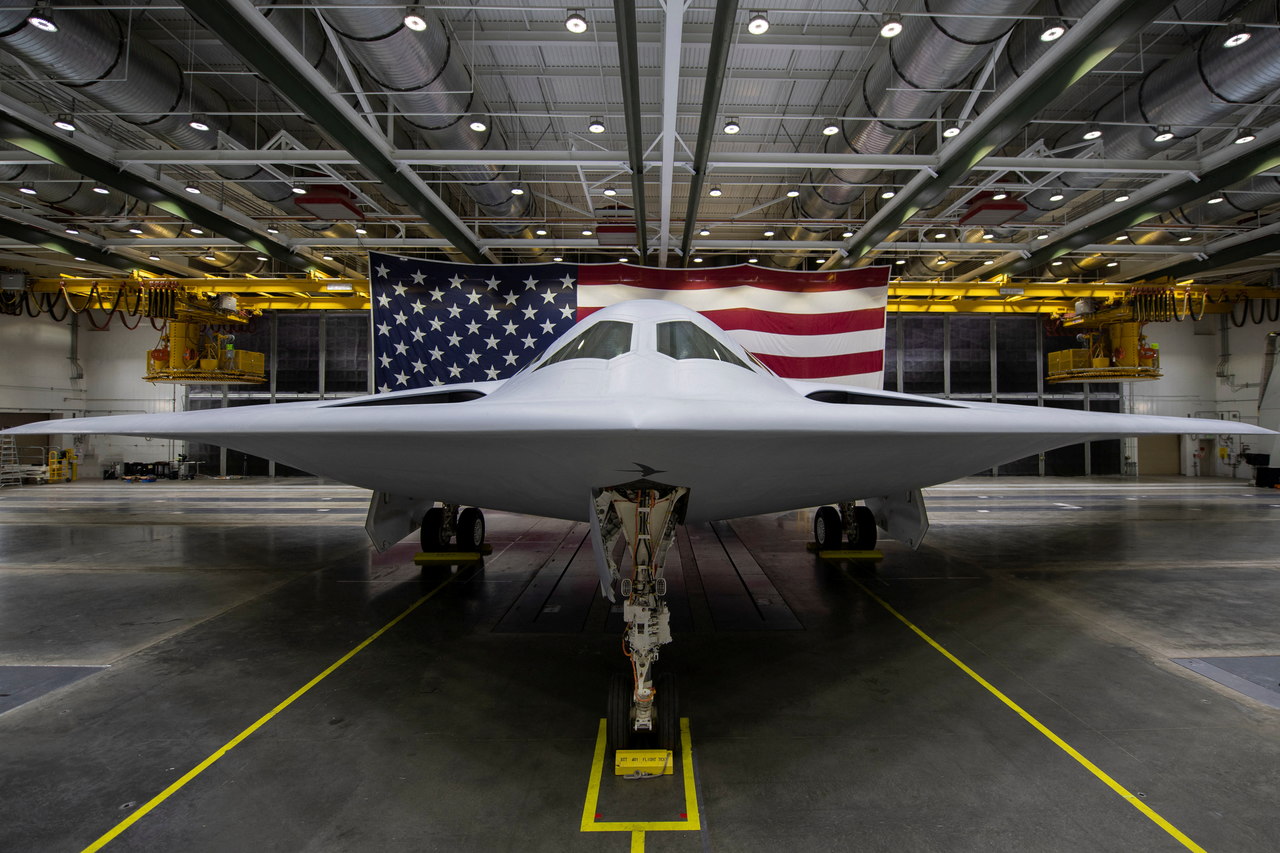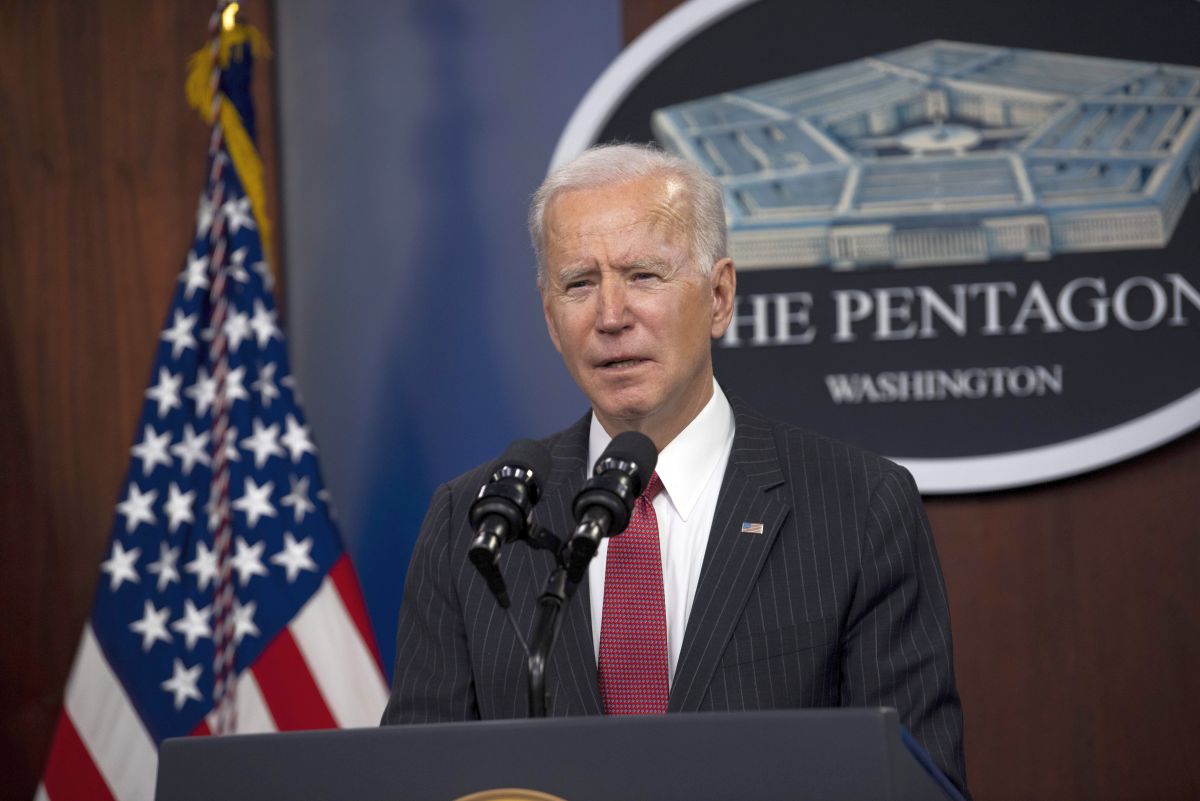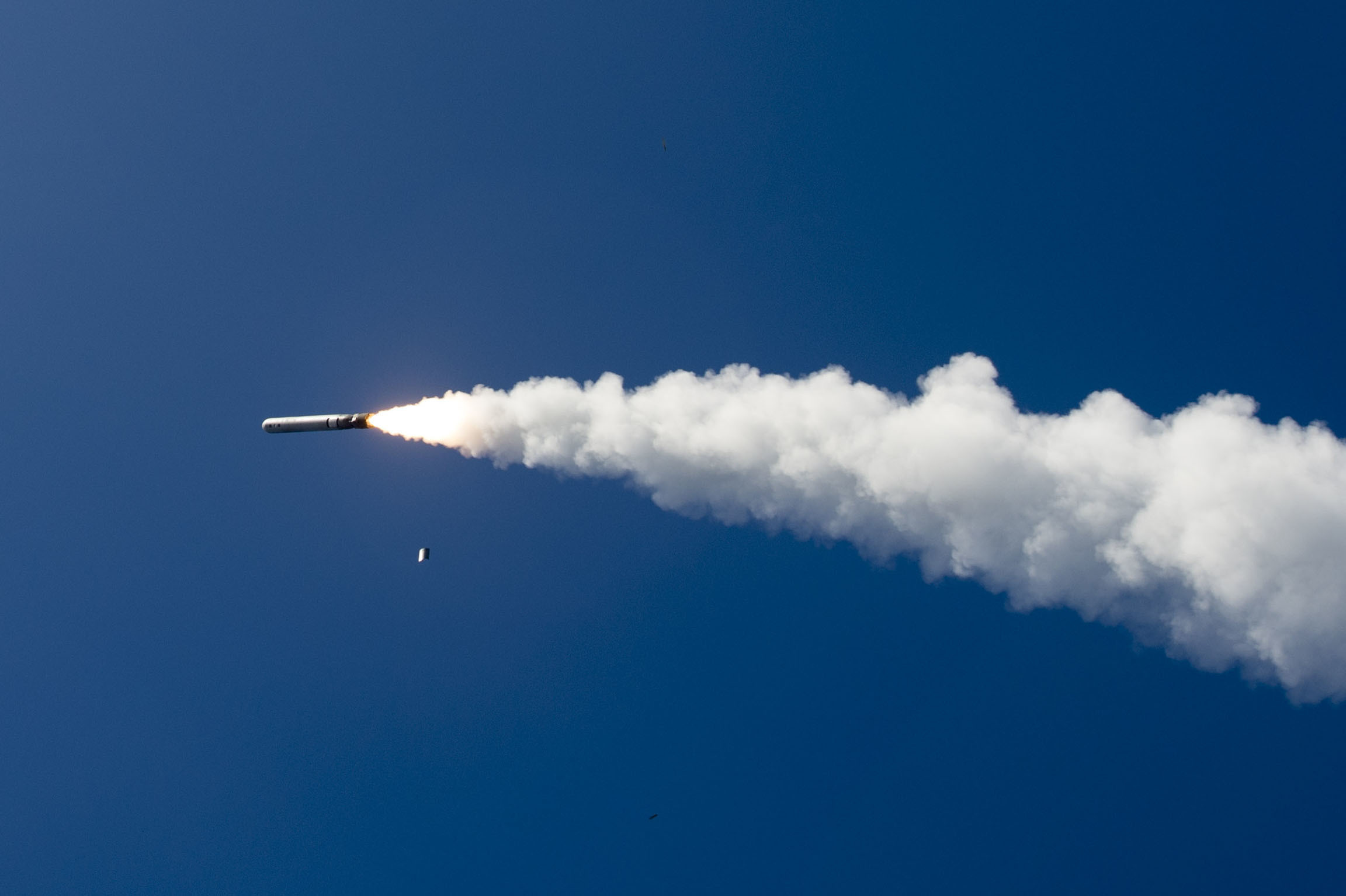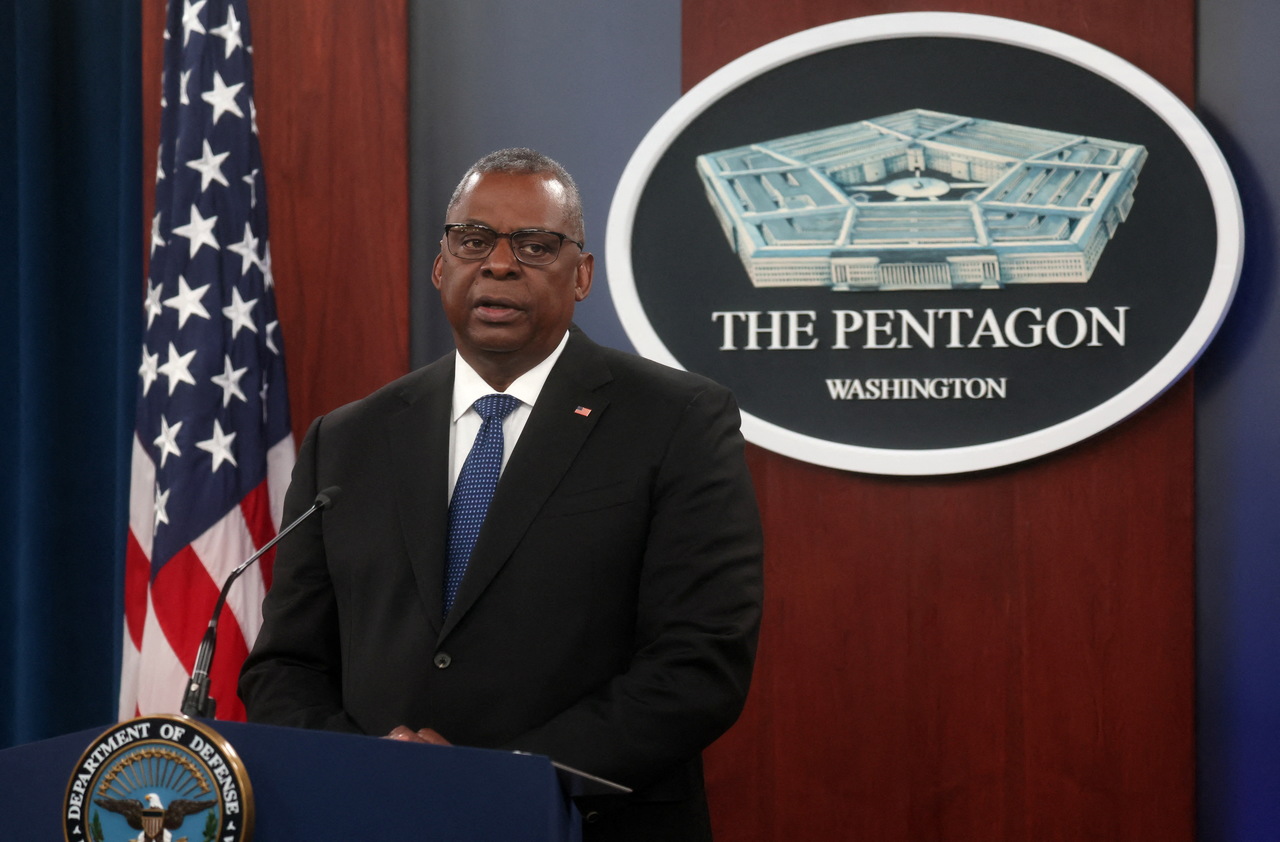U.S. Releases 2022 Nuclear Posture Review
Despite Joe Biden’s election promise to reduce the salience of nuclear weapons in U.S. security strategy, his administration is not making fundamental changes to U.S. nuclear policy. It is continuing the modernisation of the nuclear arsenal, including forces important for deterring Russia from aggression against NATO. Biden wants to, however, cancel the work on a sea-launched cruise missile that would broaden such options. It is unclear whether, in potential arms control talks, the current U.S. administration will uphold the postulate of limiting shorter-range Russian nuclear weapons, which is important for Poland.
 US AIR FORCE/Reuters/Forum
US AIR FORCE/Reuters/Forum
During the 2020 presidential campaign, Biden pledged to reduce the role of nuclear weapons in U.S. security strategy. In the new Nuclear Posture Review (NPR), published on 27 October, his administration confirms a commitment to advance that goal, but adds that its implementation is impeded by a deteriorating security environment. In effect, it declares a renewed emphasis on arms control, but—similar to the 2018 NPR of Trump—it posits deterrence of aggression against the U.S. and its allies and partners as a priority.
Nuclear Threats
According to the NPR, Russia remains the U.S. rival with the largest nuclear arsenal, which is being modernised and expanded (unofficial estimates put it at around 4,500 warheads). The NPR includes a reminder that Russia sees its nuclear forces as a tool of intimidation and supporting aggression, as evidenced by recent threats towards NATO and Ukraine. As in 2018, the document emphasises that Russia might conduct a limited nuclear attack in order to achieve victory or avoid defeat in a regional conventional conflict. The NPR also repeats that such a strategy might be adopted by China, a country to which the document devotes even more attention than the previous one. Pentagon assesses that China currently has more than 400 nuclear warheads and this number will grow to around 1,000 in 2030 (the U.S. officially has around 3,700 nuclear warheads). The NPR further lists North Korea, whose nuclear forces are much smaller but are increasing their ability to strike neighbours and U.S. territory. The Biden administration assesses that Iran is developing capabilities to produce a nuclear weapon, but so far has not decided to manufacture it. The NPR warns that terrorists remain interested in acquiring nuclear materials.
Role of U.S. Nuclear Forces
In spite of Biden’s campaign pledges, the NPR maintains that in “extreme circumstances”, the U.S. may use nuclear weapons first. It justifies this position by pointing out to U.S. rivals enhancing their capabilities for non-nuclear attacks with “strategic effects”, as well as to U.S. consultations with allies. It adds that some of the latter are particularly vulnerable to such attacks.
At the same time, the Biden administration suggests that its threshold for nuclear use is higher than that of the Trump administration. It has returned to formulations from President Barack Obama’s 2010 NPR, which states that the “fundamental role” of the U.S. nuclear arsenal is to deter nuclear strikes and that the U.S. may use it in response to only a “narrow range” of non-nuclear attacks. However, the document does not specify the attacks, therefore it is not clear whether the new NPR actually entails changes in the possible use of nuclear forces.
The NPR makes a deeper reduction of the role of nuclear weapons conditional on limiting nuclear forces of U.S. rivals and enhancing non-nuclear capabilities of the U.S. and its allies. The NPR commits to further integration of nuclear and conventional forces, including by increasing the resilience of the latter to effects of limited nuclear strikes.
Arms Control and Non-proliferation
Biden administration pledges to intensify efforts to avoid arms races and prevent nuclear use due to misunderstandings (the latter presumably refers to, for example, an enemy perceiving some conventional strikes as preparations for a nuclear attack). By such activities, it also wants to demonstrate that the U.S. is delivering on its disarmament commitments and thus encourage non-nuclear states to respect their obligations not to pursue nuclear weapons.
While it notes that there are currently no conditions for that, the Biden administration seeks to negotiate a new arms control agreement with Russia to replace the 2010 New START treaty. In 2021, Biden and Russian leader Vladimir Putin agreed to extend this treaty by five years. New START limits nuclear warheads deployed on intercontinental-range ballistic missiles and bombers to 1,550 on each side. The NPR does not specify, however, whether the U.S. conditions for adoption of the next agreement include limits on shorter-range nuclear weapons (according to the NPR, Russia has some 2,000 warheads for such systems). Such a comprehensive deal was sought by the Trump administration, which was opposed to the unconditional extension of the New START. It also aimed to negotiate a similar agreement with China. While the Biden administration also seeks to limit the Chinese nuclear arsenal, it offers China to start the dialogue with talks on greater transparency and mutual understanding on nuclear weapons-related issues.
Modernisation of Nuclear Forces
Biden is continuing the comprehensive modernisation of the U.S. nuclear arsenal, initiated by Obama and carried on by Trump. It will cost several hundred billion dollars in total, with most of it to be spent on replacement of systems that carry nuclear weapons with new ones. Within a decade, the U.S. plans to begin deploying 400 silo-based Sentinel intercontinental ballistic missiles, at least 12 Columbia-class submarines with ballistic missiles, and at least 100 stealth B-21 bombers. The B-21 and B-52 also will be equipped with a new long-range cruise missile (LRSO). Replacement of shorter-range aircraft assigned to the delivery of nuclear bombs (there are presumably around 100-150 of such U.S. warheads in Europe) with F-35 stealth fighters is to start in around a year. The modernisation programme also covers warheads and infrastructure to produce and maintain them, as well as command, control, communications, and early warning systems.
Biden’s NPR will not satisfy parts of the Democratic Party that demanded cuts in nuclear modernisation plans. In turn, Republicans increasingly argue that simultaneous deterrence of Russia and China, which rapidly grows its nuclear arsenal, requires an expansion of U.S. nuclear forces. The NPR does not contain such a decision and only suggests that it might be taken in more distant future. Moreover, Biden wants to end the development of an additional nuclear system that was started by Trump: a sea-launched cruise missile (SLCM-N) with a regional range and low-yield warhead. Biden’s decision was, however, criticised by several U.S. military leaders and met with resistance in Congress, which decided to fund the development of SLCM-N in 2023.
Work on SLCM-N was launched in order to broaden the options for a proportional response to a limited nuclear attack by Russia or China. It is a response that would lessen the risk that the enemy would deem it an escalation and respond with a massive attack. Although Biden previously criticised such low-yield systems as making the U.S. more inclined to use nuclear weapons, the NPR does not repeat this argument. Instead, it argues that other low-yield systems are sufficient to deter a limited nuclear use. This includes W76-2 warheads, which were also introduced by the Trump administration through modification of some warheads on submarine-launched ballistic missiles. According to NPR, the W76-2 are to remain in service at least until the deployment of the nuclear-capable F-35 and LRSO.
Implications for Poland
The NPR does not introduce changes that could weaken the credibility of U.S. nuclear guarantees for NATO. It neither excludes first use of nuclear weapons by the U.S. nor reduces existing capabilities to respond to a limited nuclear attacks. They will be enhanced by modernisation of U.S. nuclear forces. However, given uncertainties about Russia’s future calculations, it would be even more beneficial for NATO to expand such options by developing the SLCM-N and deploying it on ships in Europe.
While the NPR emphasises the importance of presence of U.S. nuclear weapons in Europe, it does not signal support for Poland or other allies joining nuclear sharing (which involves hosting U.S. nuclear bombs and providing aircraft to carry them). On the contrary, the NPR notes that such a change would require a decision by all NATO members. Meanwhile, some of them are opposed to it, as they find it to be provocative towards Russia and militarily unnecessary. Moreover, the Biden administration would likely see such steps as conflicting with its desire to reduce the role of nuclear weapons. It advocates other steps to increase the effectiveness of these forces (such as enhanced exercises), in addition to ongoing modernisation of nuclear bombs and aircraft for their delivery.
The approach of the Biden administration to potential negotiations on future nuclear arms control agreement with Russia requires clarification. Limiting Russian shorter-range nuclear weapons is in Poland’s interest. While Russia has long opposed it and such concessions will be difficult to obtain, this should be the starting point of U.S. agenda for these talks.





